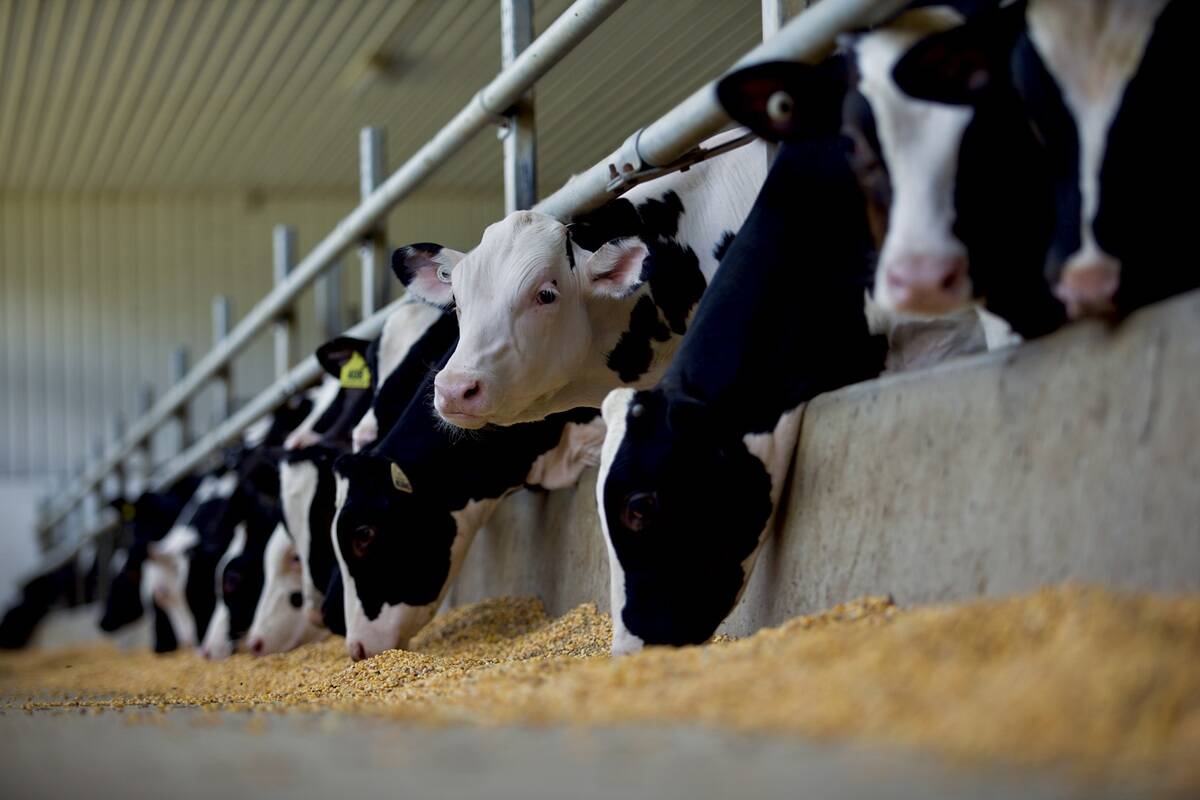WINNIPEG (Reuters) — The North American spat pitting Canada and Mexico against the United States over meat labels has sown confusion among producers and shippers in all three countries, with a trade war potentially just weeks away.
On Monday, the World Trade Organization authorized Canada and Mexico, the biggest markets for exported U.S. goods, to retaliate against the United States’ meat labeling rules, setting the annual level at $1.055 billion for Canada and $228 million for Mexico.
The U.S. took a step toward defusing the row today when the U.S. Congress approved a spending bill that includes the repeal of federal laws mandating meat packers to identify where animals are raised and slaughtered.
Read Also

Confusion cleared on Canadian calf import changes
A Canadian Food Inspection Agency (CFIA) announcement on import regulations for feeder calves caused some confusion on the administrative side of Canada’s cattle industry earlier this month
“It’s causing a lot of angst and anxiety,” said Candace Sider, vice-president of Canadian regulatory affairs for customs brokerage and trade consultant Livingston International.
A trade war may force importers in Canada and Mexico to find alternative suppliers, Sider said, but the biggest unknown element is which products may be affected.
In 2014, the U.S. shipped goods worth $312 billion to Canada and $240 billion to Mexico, according to the U.S. Department of Commerce.
In 2013, Canada’s previous Conservative government listed three dozen U.S. product categories that could be subject to a 100 percent surtax, including pork, beef, cherries, appliance parts, chocolate, wine and office furniture.
The new Liberal government has not clarified which products it may target.
The dispute stems from a 2009 U.S. requirement that retail outlets label food with information about its origin. Canada and Mexico argued that country-of-origin labeling led to fewer of their cattle and pigs being slaughtered in the U.S.
“Why our industry? This is (about) beef and pork,” said Wayne Morris, a vice-president with the Association of Home Appliance Manufacturers, whose members include General Electric Co.
“It’s a bit unfair.”
Oregon wine maker A to Z Wineworks, which sells to Canada and Mexico, is likely to focus sales next year on off-shore markets a little more than usual, given the uncertainty around Canada, said founder Sam Tannahill.
Canada remains a key market, he said.
Trade retaliation may also inadvertently hurt Canadian importers.
An official at a Canadian company that imports U.S. meat to sell to processors including Cargill Ltd. and Maple Leaf Foods said it would have to find supplies domestically if Canada strikes back.
COOL has already added costs throughout North America’s beef supply chain, said Cargill Ltd. vice-president of corporate affairs Chantelle Donahue.
Mexico may target U.S. apples, dairy, alcohol and personal hygiene products.
“It will have an import cost, and obviously the final price of the product will go up,” said Arturo Behr, president of the Mexican association of importers and exporters.
The association supports retaliatory measures, despite the impact on importers, because it protects Mexican exports, Behr said.
A trade war could even affect internal supply chains. A company that ships products from the U.S. to Canada for further manufacturing could face the surtax, Sider said.
“We believe this mandatory labelling law must be repealed before any damaging tariffs are implemented,” said Gary Mickelson, spokesperson for Tyson Foods Inc.
In only six of the previous 18 cases in which the WTO authorized sanctions did countries actually apply them because most cases were settled first.
If Canada and Mexico slap surtaxes on U.S. products, shoppers in those countries will pay more, said Bruce Cran, president of the Consumers’ Association of Canada.
“It would be a disaster. We’ll be in a trade war, and consumers are always called upon to pay the penalty.”














